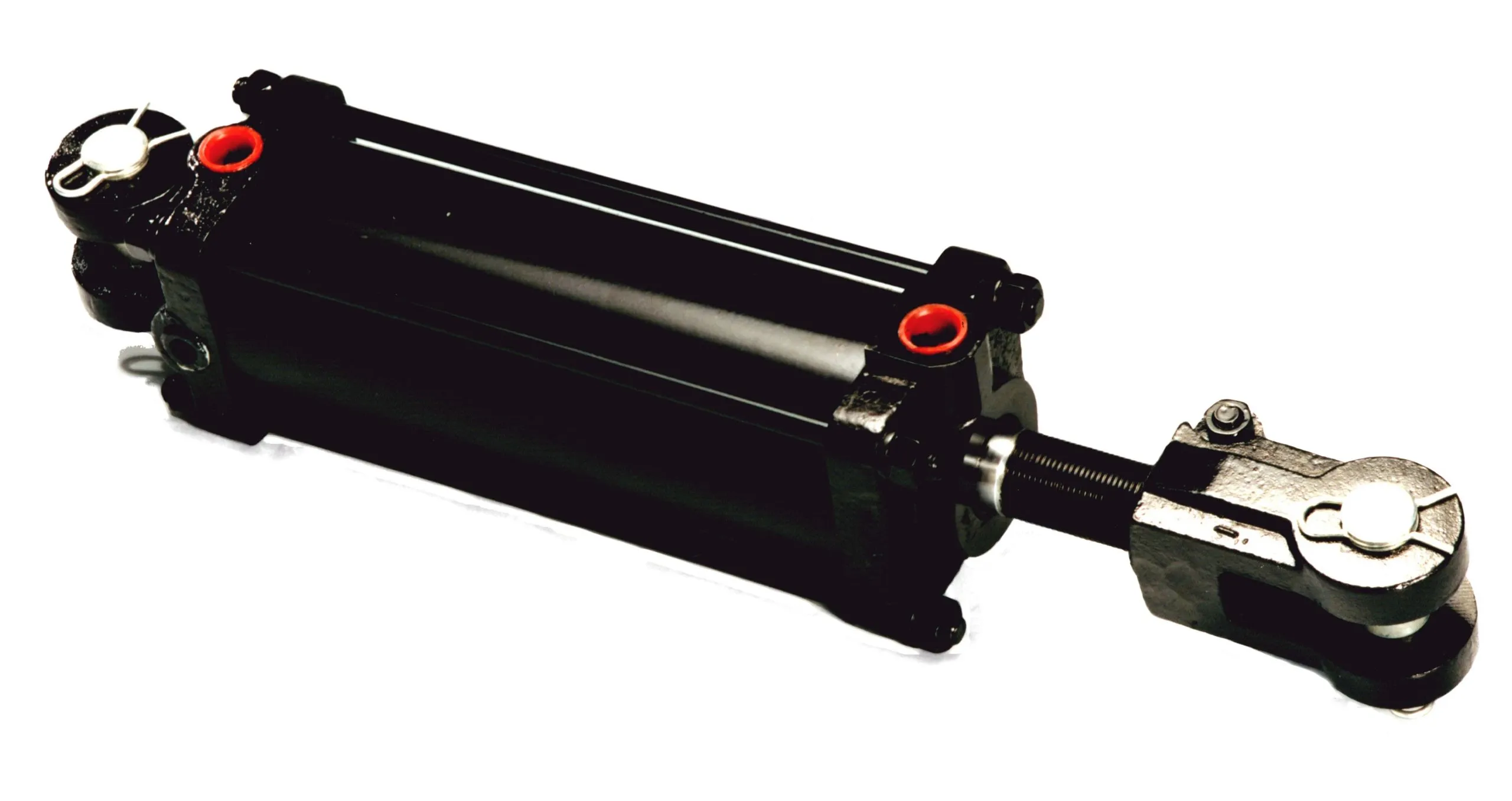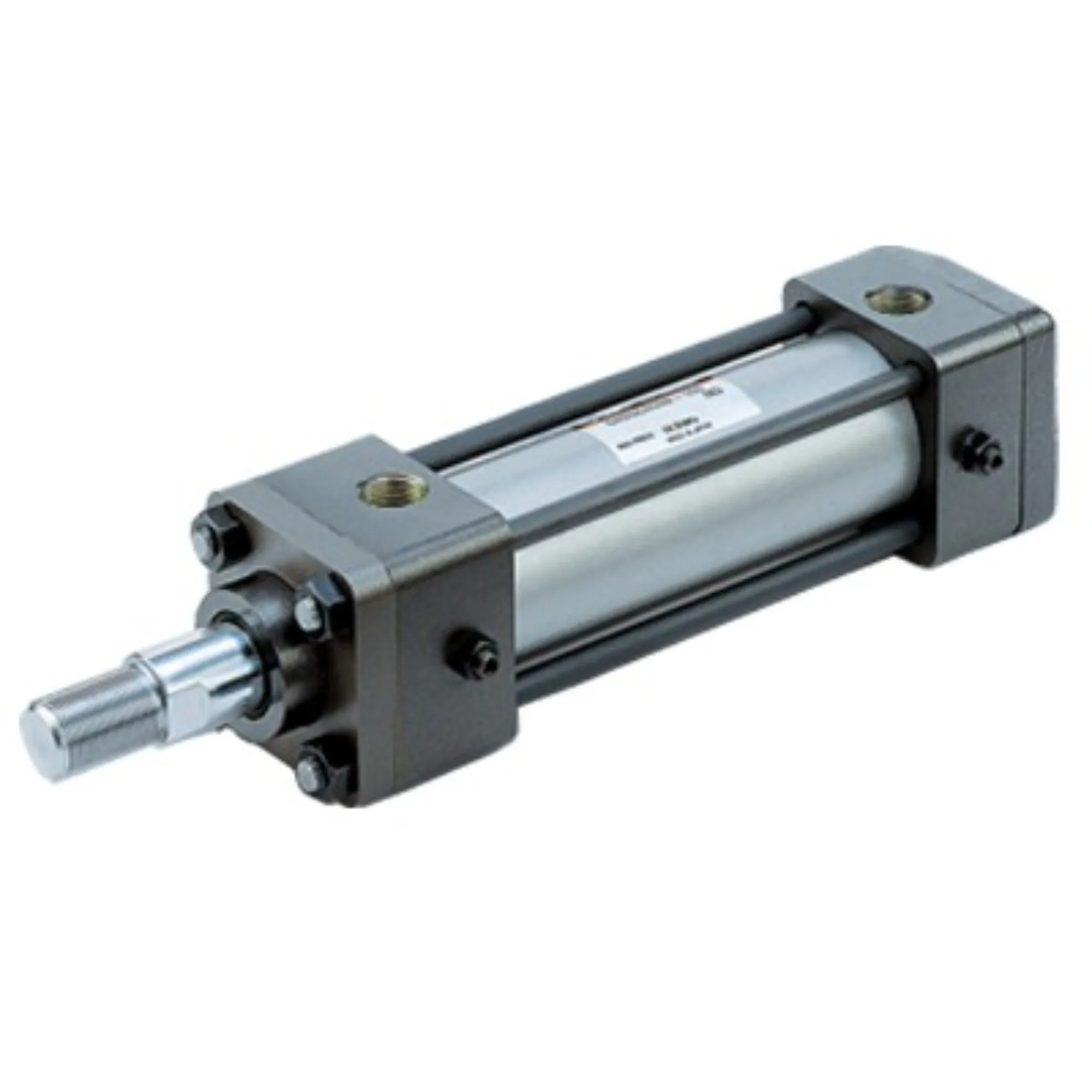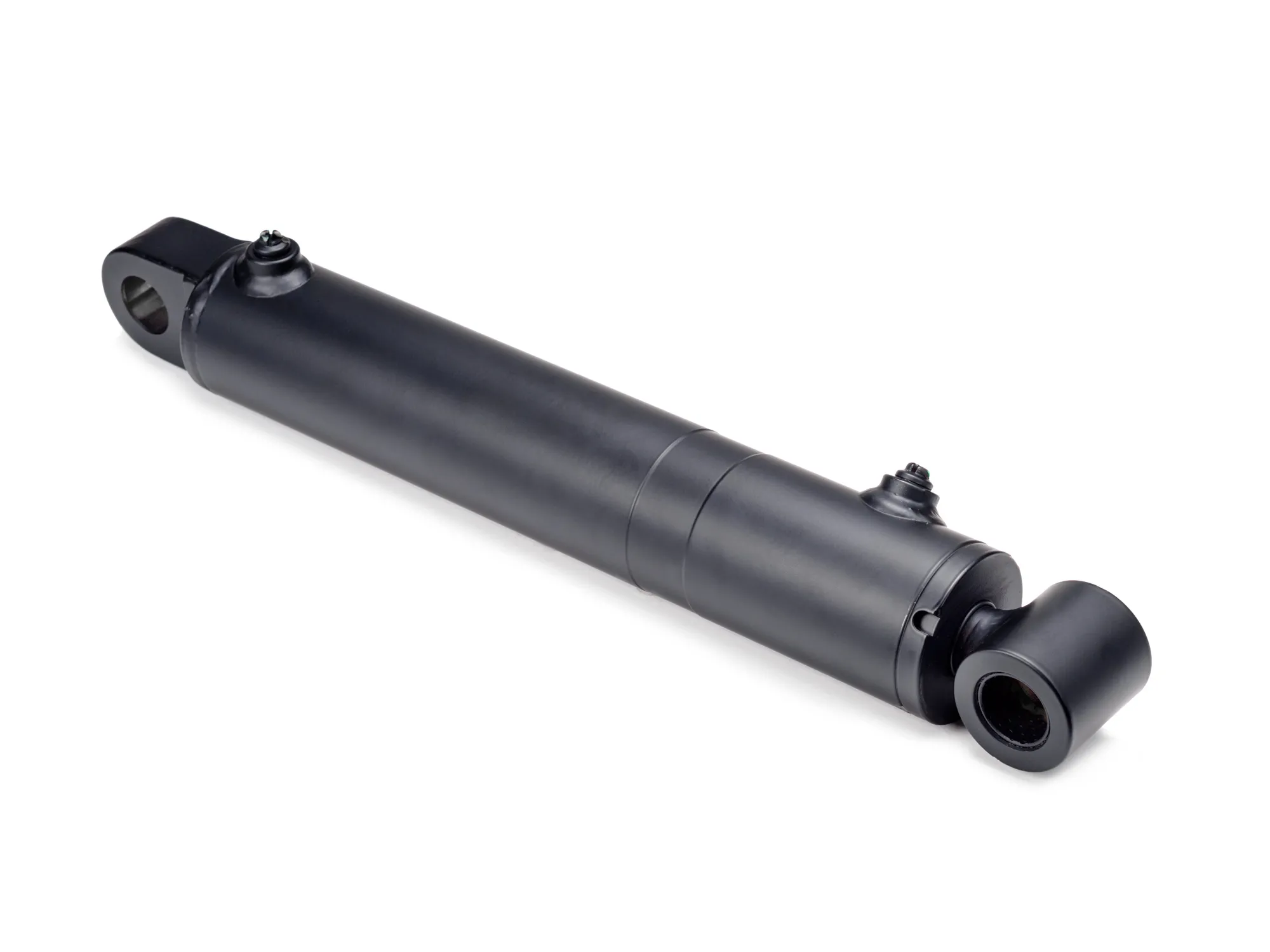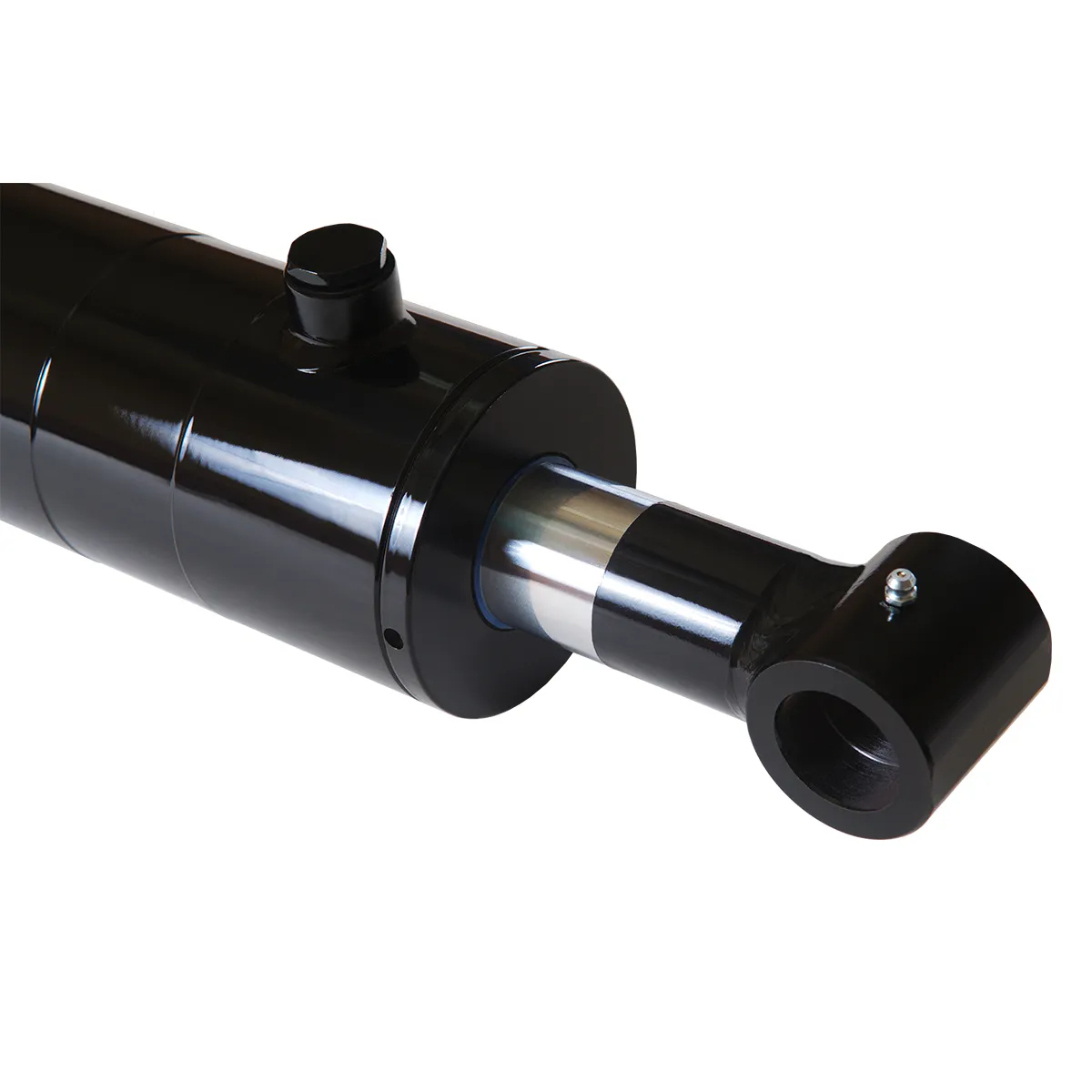Double Rod Single Acting Hydraulic Cylinder for Aerospace Applications: Efficiency and Innovation in Flight Mechanics
Introduction to Hydraulic Cylinders in Aerospace
Hydraulic cylinders play a pivotal role in the aerospace industry, facilitating various mechanical functions essential for aircraft operation. Among the diverse types of hydraulic cylinders, the double rod single acting hydraulic cylinder stands out due to its unique design and operational advantages. This article delves into the specifics of double rod single acting hydraulic cylinders, their applications in aerospace, and why they are indispensable for modern aircraft.
Understanding Hydraulic Cylinders

Hydraulic cylinders are mechanical devices that utilize pressurized fluid to produce linear motion and force. They convert hydraulic energy into mechanical energy, allowing for efficient movement and control in various machinery. In the aerospace sector, these cylinders are employed in systems ranging from landing gear to control surfaces, where precision and reliability are critical.
Types of Hydraulic Cylinders
There are several types of hydraulic cylinders, but the most commonly used ones in aerospace include:
– Single Acting Cylinders: These cylinders exert force in one direction and rely on a spring or external force for the return movement.
– Double Acting Cylinders: These can exert force in both directions, offering more control and versatility.
– Double Rod Cylinders: These have rods extending from both ends, providing balanced forces and the ability to perform tasks efficiently.

Double Rod Single Acting Hydraulic Cylinders: An Overview
Double rod single acting hydraulic cylinders are a specialized type of hydraulic cylinder that features rods protruding from both ends. This design allows for a balanced application of force while maintaining a compact structure. These cylinders are particularly beneficial in applications where space is limited, making them ideal for various aerospace components.
Key Features of Double Rod Single Acting Hydraulic Cylinders
Understanding the features of double rod single acting hydraulic cylinders helps in appreciating their role in aerospace applications. Below are some notable characteristics:
1. Compact Design
The double rod configuration allows for a shorter overall cylinder length compared to traditional single rod designs. This compactness is crucial in aerospace applications where space is at a premium.
2. Balanced Force Distribution
With rods on both ends, the forces exerted by the hydraulic fluid are evenly distributed. This balance minimizes wear on the cylinder and enhances longevity, which is particularly important in aircraft components that undergo significant stress.
3. Efficient Operation
Single acting cylinders use hydraulic pressure to extend and a spring mechanism for retraction, which can lead to faster operations. The double rod design ensures that the return stroke is also efficient, making the entire system more responsive.
4. Versatility
These cylinders can be used in various applications, from controlling landing gear to actuating flaps and slats. Their versatility makes them a preferred choice in the aerospace industry.
Applications of Double Rod Single Acting Hydraulic Cylinders in Aerospace
The aerospace industry has specific requirements that must be met for components used in flight. Below are the primary applications of double rod single acting hydraulic cylinders within this field:
1. Landing Gear Mechanisms
Landing gear systems rely heavily on hydraulic cylinders for deployment and retraction. The double rod design ensures that the forces are balanced, preventing misalignment and enhancing the reliability of the landing gear during takeoff and landing.
2. Control Surfaces
Control surfaces such as ailerons, elevators, and rudders require precise actuation to ensure stable flight. Double rod single acting hydraulic cylinders provide the necessary force and control, allowing for accurate adjustments to maintain flight stability.
3. Cargo Door Operations
The operation of cargo doors in large aircraft is another critical application. These cylinders enable smooth and safe opening and closing, which is essential for quick loading and unloading processes.
4. Flap and Slat Actuation
Flaps and slats are vital for enhancing an aircraft’s lift during takeoff and landing. Hydraulic cylinders facilitate the precise movement of these surfaces, enabling optimal aerodynamic performance.
5. Auxiliary Systems
Various auxiliary systems, such as thrust reversers and engine control systems, also benefit from double rod single acting hydraulic cylinders. Their reliability and efficiency contribute to the overall safety and performance of the aircraft.
Advantages of Using Double Rod Single Acting Hydraulic Cylinders
The implementation of double rod single acting hydraulic cylinders in aerospace applications brings numerous advantages:

1. Enhanced Durability
Due to their balanced design, these cylinders experience less wear and tear compared to traditional single rod systems. This durability translates into lower maintenance costs and extended service life.
2. Improved Safety
In aerospace applications, safety is paramount. The reliable performance of double rod cylinders reduces the likelihood of failure, thus enhancing overall aircraft safety.
3. Increased Efficiency
The efficient operation of these cylinders leads to faster response times in mechanical systems, which is crucial for time-sensitive actions during flight operations.
4. Cost-Effectiveness
Although the initial investment in double rod single acting hydraulic cylinders may be higher, their longevity and reduced maintenance needs make them cost-effective in the long run.
Challenges and Considerations
Despite their many advantages, the use of double rod single acting hydraulic cylinders is not without challenges. Here are some considerations:
1. Design Complexity
The engineering and design of double rod cylinders can be more complex than traditional designs, requiring specialized knowledge and manufacturing capabilities.
2. Weight Constraints
In aerospace applications, weight is a critical factor. While double rod cylinders are compact, the materials used must be lightweight yet strong enough to withstand the operational stresses.
3. Hydraulic Fluid Management

Maintaining optimal hydraulic fluid levels and conditions is crucial for the performance of hydraulic cylinders. Regular monitoring is necessary to ensure efficiency and prevent system failures.
Future Trends in Hydraulic Cylinders for Aerospace
As the aerospace industry evolves, so do the technologies and materials used in hydraulic systems. Future trends may include:
1. Advanced Materials
The integration of lightweight, high-strength materials such as composites and advanced alloys can enhance the performance and durability of double rod single acting hydraulic cylinders.
2. Smart Technology Integration
The incorporation of sensor technology into hydraulic systems can provide real-time monitoring and diagnostics, allowing for predictive maintenance and enhanced operational efficiency.
3. Sustainability Focus
With a growing emphasis on sustainability, the aerospace industry is likely to explore eco-friendly hydraulic fluids and energy-efficient designs that reduce the environmental impact of hydraulic systems.
Conclusion
Double rod single acting hydraulic cylinders represent a vital component in the aerospace industry, providing essential functionality across various applications. Their balanced design, enhanced durability, and efficiency make them indispensable in modern aircraft systems. As technology continues to advance, the integration of these cylinders will likely become even more sophisticated, contributing to the overall safety and performance of aviation.
For those looking to enhance their aerospace applications with top-quality hydraulic solutions, EVER-POWER offers an impressive range of hydraulic cylinders tailored to meet the specific demands of the industry. Explore our offerings to find the perfect hydraulic solutions for your aerospace needs.
